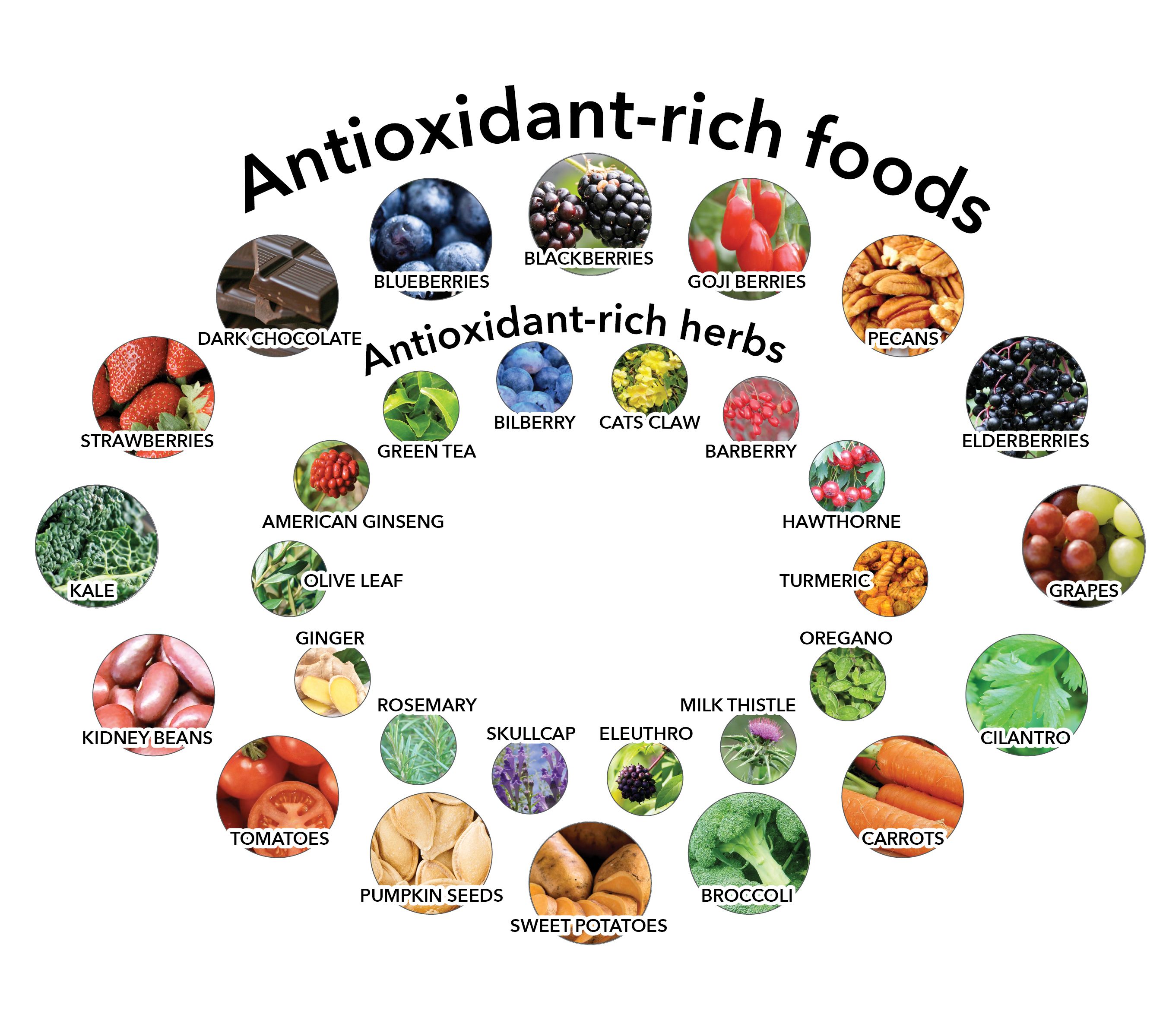None of us need to be convinced of the value fruits and vegetables bring to our health when they are a regular part of our diet. Decades of research have proven that eating a variety of fresh, brightly-colored produce every day helps reduce the risk of many serious illnesses. This benefit is thought to be mostly due to the varied and naturally occurring antioxidants found in these foods. One study found that people who consume higher amounts of antioxidants have a 9% lower death rate from all causes.
There are clear benefits to the heart; antioxidants can prevent LDL cholesterol from building up into artery-blocking clumps. Our eyes contain the highest level of antioxidants in the human body where they help delay the onset of age-related macular degeneration and work to preserve the crisp central vision needed for reading. Inflammatory conditions and those caused by oxidative stress can be better managed with antioxidants.
The magic of these important compounds is in their ability to stop or delay cell damage. They help ward off cell damage by “cleaning up” or removing waste products in our cells, called free radicals, before they can do harm or cause disease. Our bodies need an adequate supply of antioxidants to limit the buildup of free radical compounds called reactive oxygen species (ROS) that are normally produced by the body. ROS also accumulate when we are exposed to toxins such as pesticides, second-hand smoke or radiation.
When an excess amount of ROS exists, it creates a state of oxidative stress; this is linked to the development of many health problems. It only makes sense then that increasing antioxidant intake should help lessen the chance for oxidative stress to occur and thus promoting optimal health.
The key here is balance
It now appears that the correct balance of ROS and antioxidants help maintain the body’s defenses and innate healing systems.
ROS used to be considered the enemy, with little, if any, benefit. However, there is new evidence suggesting that they play an important role in a healthy immune response, including the ability to fight off invading microbes and the rogue cells that, if left to divide and multiply, can turn into cancer.
In simple terms, it appears that antioxidants protect healthy cells and cancer cells from the damaging effects of ROS. When cancer cells break free of a tumor and move through the body they can and should run into oxidative stress—an onslaught of ROS. This molecular battle usually prevents most cancer cells from making it to new organs and tissues. But an out-of-proportion shot of antioxidants can potentially spare them, making it more likely that the cancer cells will survive and spread to a new part of the body.
Eating the recommended variety of 5-9 servings of fruits and vegetables can be a challenge. Plus, there’s the question of the soil quality the food was grown in and its real nutritional value after sitting on the grocery shelf for weeks. The easiest and most chosen way to get more antioxidants is to reach for one or more high-dose antioxidant pills such as beta carotene, Vitamin E, or Vitamin A, or a mineral source such as selenium. But, there is disturbing recent research on the use of these and indications that high doses of single antioxidants may do more harm than good, in some circumstances, by creating an imbalance.
There are now published studies strongly pointing to high doses of beta carotene (a type of provitamin normally found in much lower concentrations in yellow/orange vegetables and fruits) increasing the risk of cancer in people who smoke. Another study indicates a higher risk of prostate cancer among otherwise healthy men taking high-dose vitamin E and a possible connection between high-dose selenium supplementation and an increased risk of skin cancer.

The words to remember are “high-dose” – not the naturally low concentrations found in food and plants such as herbs but the above-normal amounts found in many antioxidant supplements and even some multivitamins. Not only are these high-dose antioxidants single antioxidants, but they also lack the many complimentary nutrients found in whole foods and whole food supplements such as non-standardized, pure herbal extracts and capsules.
While the jury is still out on the mixed results of the studies, it is clearly one thing to get the antioxidant benefits from food sources and plants but an entirely different matter to take a pill that gives you a thousand times more than what is found in the beautiful fruits and vegetables we should continue enjoying.
The Antioxidant Controversy